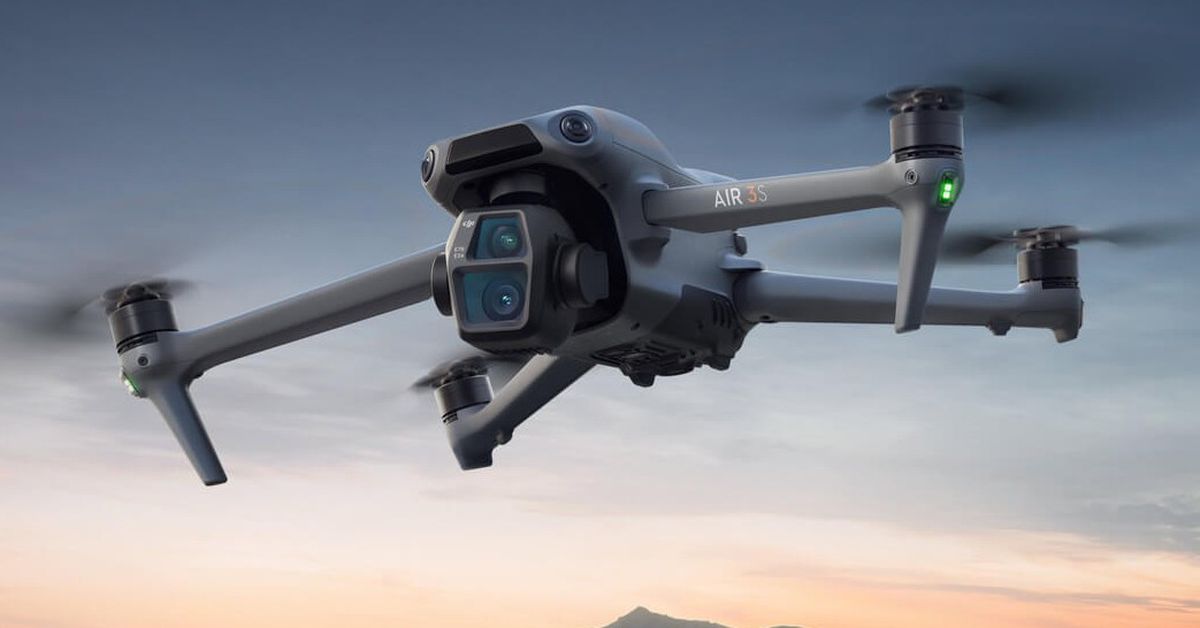The National Defense Authorization Act (NDAA) and its Consequences for DJI
The US Senate Passes the NDAA, with Potential Major Consequences for DJI
The United States Senate has passed the National Defense Authorization Act (NDAA), an annual defense spending bill that may have significant repercussions for the world’s largest drone company, DJI. While the act does not contain the full provisions of the "Countering CCP Drones Act," which would have swiftly blocked imports of DJI products into the United States, it initiates a one-year countdown until its products (and those of rival drone manufacturer Autel Robotics) are automatically banned.
DJI’s Products and the NDAA
The NDAA instructs the Federal Communications Commission (FCC) to add DJI’s gear to its "covered list" under the Secure and Trusted Communication Networks Act, unless an appropriate national security agency publicly declares that its products do not pose an unacceptable risk to the national security of the United States. This covered list prevents gear from running on US networks and bars the FCC from authorizing internal radios for use in the US, effectively blocking all imports.
While this would prevent new DJI drones from being imported into the United States, it does not prohibit US citizens from continuing to use their existing DJI gadgets. However, every DJI product with a radio or camera, including popular devices like the DJI Osmo Pocket 3, would technically be banned under the NDAA. The bill specifies that communications and video surveillance equipment are targeted, rather than just drones.
Whitelabeling and Licensing Loopholes Closed
The text of the bill (PDF, see page 1084-1088) is designed to prevent DJI from exploiting loopholes such as whitelabeling its drones under other brand names or licensing its technology. The bill explicitly tells the FCC to add "any subsidiary, affiliate, or partner" and "any entity to which the named entity has a technology sharing or licensing agreement" to the covered list.
President Biden’s Decision Awaits
The NDAA had already passed the House of Representatives and is headed to President Biden’s desk. Given its strong bipartisan support and the threat of a partial government shutdown if not signed, it is considered a must-sign bill for the President. The decision on whether to sign or veto the bill rests with President Biden.
DJI’s Future in the US Market
DJI may face significant challenges in the US market regardless of the NDAA’s outcome. Without the act’s provisions, DJI was already facing increased scrutiny from the US government and had begun to see surprise import restrictions under the Uyghur Forced Labor Prevention Act. In October, it sued the US Department of Defense for labeling it a "Chinese Military Company." The company has expressed concerns about the NDAA, stating that it is good news that the act does not explicitly ban DJI products but worries about the lack of specificity regarding the agency responsible for determining whether its products pose a risk.
What’s Next for DJI?
In a blog post, DJI calls on Congress to select a "technically focused agency" to carry out the assessment and give the company the opportunity to reply. The outcome of this situation will be critical for DJI’s future in the US market, with significant implications for its ability to operate and sell products in the country.
Related Developments
- TikTok CEO meets with Trump as the platform tries to avoid a ban: TikTok, another Chinese technology company facing scrutiny from the US government, has also sought to avoid a ban by meeting with President Trump.
- US targets TP-Link with a potential ban on the Chinese routers: The US government is increasing its scrutiny of Chinese technology companies, including TP-Link, which may face a ban on selling its products in the US.
In conclusion, the NDAA has significant implications for DJI’s future in the US market. While the company faces challenges and uncertainties ahead, it is likely that DJI will continue to operate in the country despite potential obstacles.
Call to Action
- Join the conversation: Share your thoughts on the impact of the NDAA on DJI and its products.
- Stay informed: Follow the latest developments on the NDAA and its implications for DJI.
- Support or oppose: Express your opinion on the bill’s provisions and their potential effects on the US technology industry.
This is a significant moment for DJI, with potential major consequences for its business in the United States. The outcome of this situation will be critical for the company’s future and may have far-reaching implications for the global drone market.
Sources:
- Text of the NDAA
- DJI’s blog post on the NDAA
- TikTok CEO meets with Trump as the platform tries to avoid a ban
- US targets TP-Link with a potential ban on the Chinese routers
Further Reading
- The impact of the NDAA on the US technology industry: An in-depth analysis of the bill’s provisions and their potential effects on the global tech market.
- DJI’s position in the US market: A look at DJI’s current business operations in the United States and its prospects for growth.
- The role of government regulation in shaping the drone market: An examination of the regulatory environment that DJI operates within.



